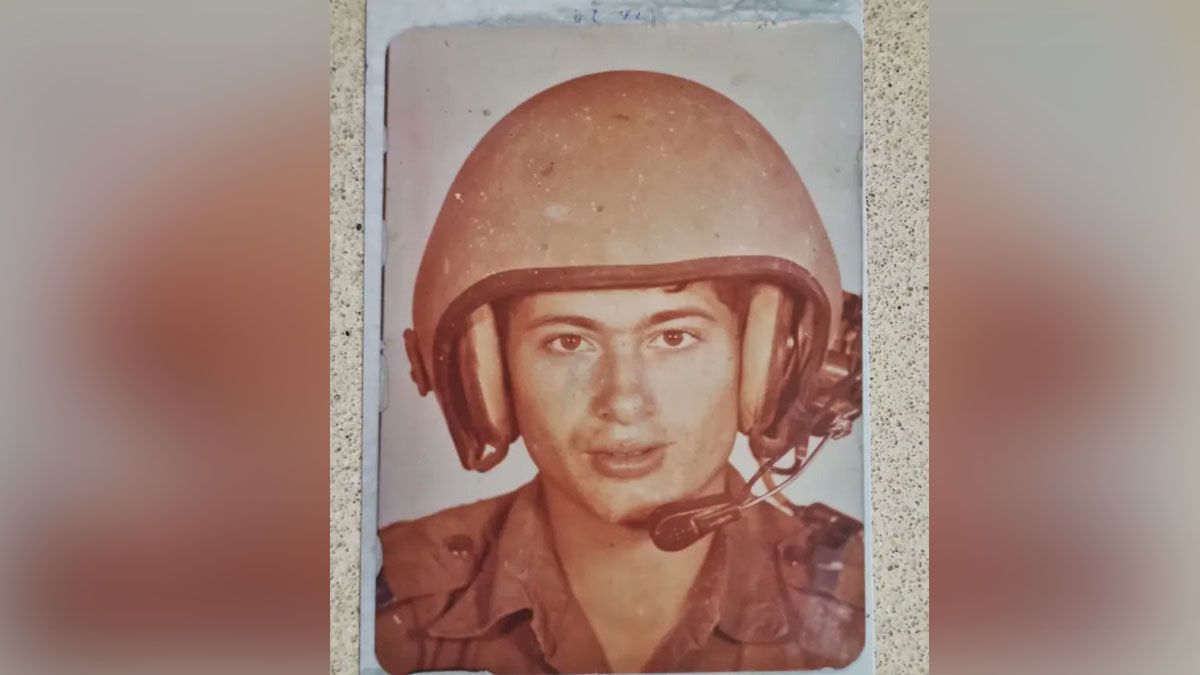How did Israel recover body of IDF officer Zvi Feldman from Syria, 43 years after first Lebanese war

After more than four decades of uncertainty, the family of Sergeant Major Zvi Feldman found closure they had long yearned for. On May 11, the Israeli government informed them that Feldman's remains had finally been recovered and would be brought back to Israel.
“This is a joyful day for our family and for all of Israel,” said Anat Cohen, Feldman’s sister, speaking from her home. “We’ve cried our entire lives—and now, the unimaginable has happened.”
Feldman, a soldier in the Israel Defense Forces’ Armoured Corps, was declared missing in action during the Battle of Sultan Yacoub in June 1982—part of Israel’s invasion of Lebanon during the First Lebanon War. His body was located deep within Syrian territory five months ago, and DNA testing confirmed his identity.
Prime Minister Benjamin Netanyahu personally visited the Feldman family to deliver the long-awaited news. “We made a commitment to bring him home—and we have,” Netanyahu said. “This was an extremely complex operation, the result of years of tireless work.”
The recovery was made possible through a covert operation led by the Mossad, in coordination with IDF Military Intelligence. Operatives risked their lives to locate the remains in a cemetery located dozens of kilometres inside Syria. The mission, directed by a retired officer who returned to duty for this purpose, required covert movement through hostile areas under threat of gunfire.
Although the operation unfolded during the tenure of Syria’s new president, Ahmad Al Sharaa, officials clarified that the Syrian government was not involved. However, the collapse of Bashar al-Assad’s regime created the conditions necessary for the mission's success.
Five months ago, a foreign team first accessed the burial site and retrieved a DNA sample, which was sent to Israel for analysis. Once Feldman’s identity was confirmed at the Genomic Centre for Casualty Identification, the remainder of his body was recovered and brought home.
The Battle of Sultan Yacoub in the Bekaa Valley was one of the most difficult campaigns of the Lebanese war, fought by Israeli troops against Palestinian and Syrian soldiers. It saw 30 Israeli soldiers getting killed and six reported missing. Among the missing soldiers was Sergeant Zachary Baumel, whose remains were recovered in 2019. Feldman’s remains are the second to be repatriated from that group. Efforts to locate the last missing soldier, Yehuda Katz, remain ongoing.
At an emotional press conference, Feldman’s sister expressed gratitude to the Israeli government and military. “For years, we believed Zvika would return—and now he has,” Cohen said. “We finally have a grave to visit. Our battle was long, but it’s over.”
Zvi’s brother, Itzik, reflected on the decades of uncertainty. “More than 30 years ago, we were promised he would come home. Today, that promise has been fulfilled.”
Defence Minister Israel Katz said, “In this painful moment, our hearts are with the Feldman family, who have endured decades of sorrow and longing. We all bow our heads with them today.”
Despite the broader focus on recovering hostages and casualties from the October 7, 2023 Hamas attacks, the IDF’s repatriation department continued its behind-the-scenes efforts to locate long-missing soldiers. This operation marks a significant success in that enduring mission.
Feldman was laid to rest with full official honours on May 12 at the Holon cemetery in Tel Aviv. As Anat Cohen poignantly stated, “This is the picture that has hung in our parents’ home for decades. Now, Zvika is no longer just a photo. He is home.”
Middle East